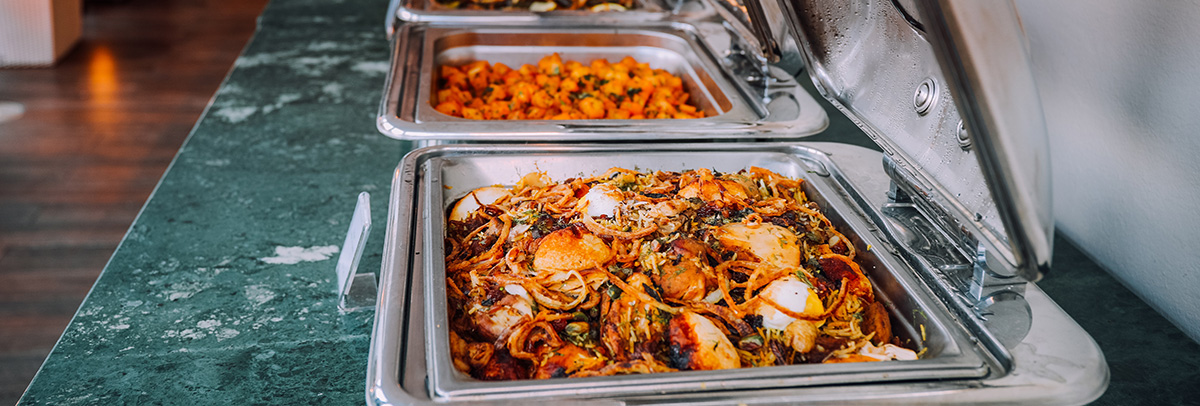All groups preparing foods for public consumption are required to have at least one member with a Food Handlers Permit through Benton County Environmental Health. This person is responsible for training volunteers in safe food handling practices. At least one licensed food handler should be present at the event at all times.
Guidance for groups in planning and preparing a safe and successful food event.
-
Food products must be purchased at a licensed food purveyor.
-
All items that require production (mixing, slicing, chopping, cooking) must be prepared in an approved licensed kitchen facility.
Items that are purchased service ready,( i.e., deli trays, baked goods and fruit trays) must meet Benton County requirements during transport, holding and serving. Special attention should be given to maintaining temperature, sanitation and safety and to eliminating the possibility of cross contamination.
Women's Center, Native American Long House, Cesar Chavez Cultural Center, Asian Cultural Center and the Lonnie B. Harris Black Cultural Center can be licensed as a Temporary Restaurant by Benton County for small gatherings with limited menus sponsored or co-sponsored by the Centers. Contact Benton County Environmental Health to submit application for license. Events that have an outdoor cooking component may be required to have a Temporary Restaurant License. Contact Benton County Environmental Health to submit application for license.
Consider utilizing the Global Community Kitchen located in the basement of the MU for food prep as this is a licensed kitchen with professional staff to help with ordering of ingredients and compliance to local regulations.
-
ON-SITE Cooking: Only gas equipment is permissible to be used (no briquettes)
-
PIT Cooking: Approval from Corvallis Fire Department must be provided
Many venues on campus have a specific list of approved food service providers. Make sure your plans fit within the guidelines of the venue.
